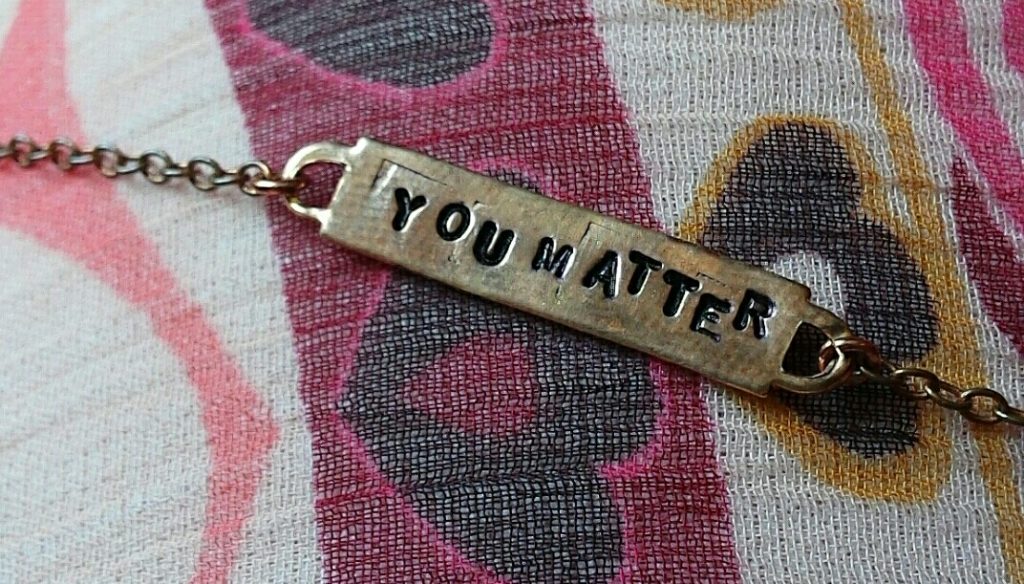“In the past, have you ever attempted to seriously hurt yourself?”
She means have I ever tried to kill myself.
I wiped my sweaty palms on my jeans.
“Um, yeah. I’ve tried to kill myself,” I counted with my fingers in my lap, “…about, a handful of times.”
A handful. A neat five little fingers. I summed it all up to that.
What couldn’t fit into a handful was the nights on the cold linoleum tiles of my dorm room floor sobbing, imploding, tucking all my body parts into each other in hopes that if I became small enough, I could cease to exist. What I couldn’t count with five fingers was the number of times the words “stupid”, “pathetic”, and “worthless” circulated through my mind every minute. What couldn’t fit into a handful was the heavy mornings feeling paralyzed, was the layers of clothes to hide my cuts, was my uncanny ability to immediately construct a way to hurt myself with any objects in sight after walking into a room. It was the dignity-stripped full body sobbing at the party, on the bus, walking home, begging my friends to leave me fallen next to the dumpster in the rain. What I couldn’t count on five fingers was every failed medication, every bad grade, every extra pound, every dollar of debt, every wrong word or awkward pause, every tiny disagreement, every mess I made because of my illness. What I couldn’t fit into a handful was the profound burning hatred I had for my existence.
I was being assessed by a psychologist at a psychiatric treatment center to determine my eligibility for admission. I fought with myself for months over whether I was “sick enough” for inpatient treatment. I fought with myself for years over whether I was actually sick. Here, in this room, for the first time, I found myself relentlessly and entirely fighting for myself. Fighting for help. Fighting for my life. I was tired of holding myself together, so I cracked myself open and poured everything out.
It was the first time I spoke the words out loud.
Speaking up is what helped set me free.
Stigma is a strong force. It stuffs sufferers behind closed doors, alone and in the dark, until they feel like they don’t belong with others in the light. People are uncomfortable with things they don’t understand, so they feed into stigma, attaching lies to mental illness and suicide or not acknowledging it at all. It isn’t easy to speak up about your pain. It might feel uncomfortable, wrong, terrifying – but it does get easier. Your voice is the most important instrument you’ve been given, and no matter how small or shaky or hoarse it feels, it is there so you can use it. For yourself. For others like you. We all need help sometimes; there is no reason to be ashamed of what you’re feeling. You don’t have to fight this alone. Set yourself free.
Five fingers is a wave to an old friend in the distance. Five fingers is running them through your hair in the comfort of a hot shower on a winter morning. Five fingers is petting your puppy as she falls asleep in your lap. Five fingers is curling them around someone else’s. Five fingers is a high five with a stranger. Five fingers is carrying your best friend’s suitcase when he finally saves enough money to visit you. Five fingers is gripping them around the knob and opening that door and reaching out…
With each of my five fingers, everything could have been gone.
I feel like I see things through brand new eyes now. Every day isn’t easy, but if recovery is real for me, it is real for you. You can feel alive again. You are worthy of feeling better, no matter how far or how deep you’re coming from. You were created for a reason. The strength you possess is so much bigger than your scars and the tangled thoughts in your mind that tell you otherwise. You bring gifts to the world that you might not be aware of yet. Your story is beautiful in a way that no one else’s will ever be. Give it a chance. Stay with us a little longer and give life a chance.
Open the door. Reach out. Speak up. I believe in you.
The post What’s Beautiful About Your Voice appeared first on .
